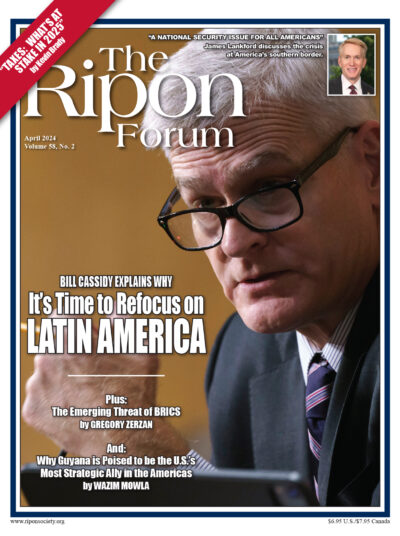
At root, taxes are supposed to fund the provision of public goods – the basic function of government. Even a quick glance at the Internal Revenue Code would put to rest the notion that it is merely an efficient source of federal revenue. Not hardly, and certainly not by accident. Indeed, the modern U.S. tax code reflects overlapping tax regimes that aim to satisfy inexorably irreconcilable goals: efficiency and fairness. At the center of this tension is the American family.
Our current tax system reflects an imperfect balance between efficiency – essentially how much cost the tax system imposes on the economy for a given amount of revenue – and distributional considerations. Our tax code variously applies regressive, progressive, consumption, capital, and income taxes. Taken as a whole, it is a somewhat incoherent approach to taxation, but one that is relatively immune to wholesale reimagining. The Tax Cuts and Jobs Act of 2017 (TCJA) was far and away the most ambitious tax reform effort in 30 years, but it nevertheless left the basic architecture of the tax code unchanged. What’s left for tax reformers in the near and medium term is striking the right balance between efficiency and fairness within the parameters of the existing system.
The modern U.S. tax code reflects overlapping tax regimes that aim to satisfy inexorably irreconcilable goals: efficiency and fairness. At the center of this tension is the American family.
The individual income tax system is the most conspicuous element of the tax system, and indeed, what we traditionally consider to be family-oriented tax policy is typically a feature of the individual code. Perhaps the most visible such element is the Child Tax Credit (CTC). The CTC was first enacted in 1997 as a result of a growing bipartisan consensus to both eliminate from taxation some presumed costs of child-rearing as well as to provide income support for parents, particularly those with lower incomes. Like many government programs, the CTC has grown considerably over the years and has figured prominently in bipartisan tax measures over the past several decades. Indeed, the House of Representatives recently passed an expansion of the credit to dovetail with the pending expiration of the individual reforms of the 2017 tax law. It is important to note that prior to the TCJA (and upon its potential expiration), the individual tax code included personal exemptions that also adjusted for family size.
The original formulation of the TCJA included a corporate tax rate of 20 percent. This version was amended to increase the child tax credit in exchange for a higher corporate tax rate. This trade-off reflects the false dichotomy between “pro-business” and “pro-family” tax policy that has been the happy rhetorical hunting ground of the political left, and increasingly in some corners of the political right.
A tax code that does not grapple with distributional considerations and public perceptions of its relative fairness is not stable in a representative democracy. But neither is a tax code that is so wildly antiquated as to ship domestic employers overseas, as was the case with business taxation prior to the 2017 law.
A tax code that does not grapple with distributional considerations and public perceptions of its relative fairness is not stable in a representative democracy.
The linkage between prosperity and a competitive tax code is a far more complicated story to tell than one of the given value of discrete tax provisions to its beneficiaries such as the CTC. It is in part for this reason that the U.S. tax code slowly grew more porous, while topline rates climbed after the 1986 Tax Reform Act. It is also for this reason that progressives delight in reductive tax policy debates that attempt to pit U.S. employers against pro-family policy.
This dynamic poses two problems for American families. The first is the basic administrability of the tax code. As the tax code grows more complex, families’ costs in complying with it also increase. The Biden Administration provided the IRS with nearly $80 billion in new funding – but most of this funding will be devoted to tax enforcement. Separate and apart from the tax code itself, a pro-family tax agenda necessarily includes a tax authority that is trustworthy and competent. On this front, the IRS has a lot of work to do.
The second challenge is in striking the right balance in what the tax code can and should achieve. The United States is staring down an eventual debt crisis that inherently threatens the stability of the tax code. In a perfect world, policymakers could indulge in trade-off-free lawmaking, but our world is far from perfect. While policies such as the CTC are conspicuously targeted at families, ultimately, all taxes are eventually paid by the American people.
Accordingly, while some policies may look to be more or less friendly to American families, we must consider the tax code as a whole and in the context of a global economy grappling with daunting budgetary challenges driven substantially by entitlement programs.
Gordon Gray is the executive director of Pinpoint Policy Institute. He previously served as vice president for economic policy at the American Action Forum, as well as a senior policy advisor to Senator Rob Portman.




